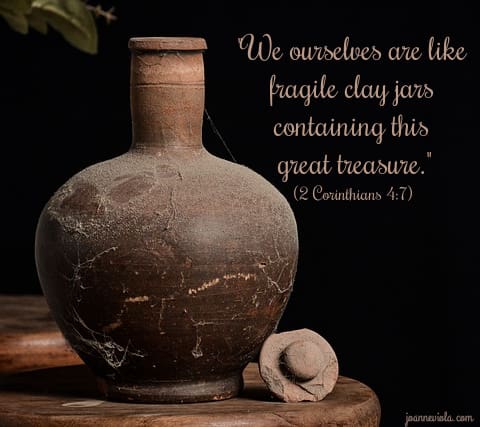Perfectionism has been on my mind a bit these last few days. Most of us have a desire to do things well, or at least with excellence. Yet there is no one who does all things with perfection.
Perfectionism stakes its claim on us by making us feel we are not enough. It makes sure we know we never will be either. It can also make one think they do everything better than everyone, therefore, critiquing others all the time.
The word, “perfectionism”, sounds like it should have a positive connotation but if we dig deeper, we find the hidden ugliness it truly masks:
- Perfectionism has nothing to do with doing the best you can. It actually keeps us from doing our best. In order to avoid failure, we don’t do at all.
- Perfectionism does not help us to improve ourselves either. Perfectionism does not look to help improve but rather only looks to see what others will be thinking about us.
Perfectionism >>> “a personal standard, attitude, or philosophy that demands perfection and rejects anything less” (from dictionary.com).
Did you notice it is a “personal” standard? We do it to ourselves. But it does not stay isolated to ourselves:
“Perfectionism never happens in a vacuum. It touches everyone around us. We pass it down to our children, we infect our workplace with impossible expectations, and it’s suffocating for our friends and families. Thankfully compassion also spreads quickly. When we’re kind to ourselves, we create a reservoir of compassion that we can extend to others. Our children learn how to be self-compassionate by watching us, and the people around us feel free to be authentic and connected.”
(from The Gifts of Imperfection, by Brene Brown, page 61)
We must come to the place where we realize we will never be perfect. We all are flawed. All in need of grace. Paul explains it this way:
“We now have this light shining in our hearts, but we ourselves are like fragile clay jars containing this great treasure. This makes it clear that our great power is from God, not from ourselves.”
(2 Corinthians 4:7, NLT)
As Paul remembered his imperfections, it kept him from thinking too highly of himself. It helped him to promote God, whom he served rather than promoting himself.
As he thought of himself as a clay jar, he realized it was not the jar which had value but the treasure inside the jar which gave the jar its value.
We’re all fragile. We’re all cracked. And that’s OK for it is the very means by which His Light shines through our lives.
Those cracks show the world that in spite of our imperfections, God loves us.
Those cracks remind us that although we ourselves are imperfect,
the Perfect One resides inside of us.
Last week I wrote about waiting for the Lord. In her post, “Will You Wait with Me?“, Donna Bucher shares how she is learning that waiting with Jesus in her suffering is much better than waiting for Him to act in the way she expects.
Come, sit a spell. Bring your coffee, your posts, and your thoughts. If you link up, kindly visit those who have drawn up a seat around you.
Image by Antonio Luis Luis from Pixabay





I love your following statement Joanne;
“Those cracks show the world that in spite of our imperfections, God loves us.
Those cracks remind us that although we ourselves are imperfect,
the Perfect One resides inside of us.”
Blessings, Jennifer
Thank you, Jennifer. It’s amazing how Jesus makes life worth the living and gives us worth too!
It encourages me to remember that the treasure “in my earthen vessel” is there to glorify God and “the excellency of his power.”
Perfectionism is definitely an obstacle to grace!
I so agree, Michele. Perfectionism eclipses the grace which He so lavishly pours on our lives.
**the pun was not due to this week’s eclipse 🙂
Perfectionism is a harsh taskmaster, an energy drainer that always disappoints. Knowing how it impacts others may help us make choices to nip it in the bud and to begin a deeper focus on God rather than our endless self-absorption.
Thanks for your wise words, Joanne …
“Perfectionism is a harsh taskmaster, an energy drainer that always disappoints.” Yes (!), thank you for sharing that wisdom. I so appreciate you, Linda.
Perfectionism is such an insidious thing, sneaking into the crevices of our day when we’re least aware. I love seeing you mention Brene Brown here. She has been so influential in bringing it into the light so we can all see the damage that it causes. Personally I still have to fight it too. Last year my one word Human helped me recognize it and let go of it a little more.
I read her book several years ago, and revisit the book every now and then. I agree with you, Lisa, perfectionism is insidious and it will creep in if we are not alert. It’s why I find myself thinking about it every now and then so I keep it in check.
How interesting the point of how we put perfectionism on ourselves. That is so true. TFS!
And we can be the hardest on ourselves.
Amen. I used to be what I called a frustrated perfectionist. I wanted to do everything perfectly, because who wanted to do things sloppily? But that was so frustrating, because nothing ever came out perfectly. And if it came near, I’d be tempted to pride (which is probably one reason God allows so many imperfections to crop up in what we do). It took a long time to adjust my thinking to striving for excellence but accepting that I will always be imperfect in this life. I find it helps with both pride and frustration to remind myself “I’m just a clay jar.” He’s the treasure: if we do anything of value, it’s due to Him.
Amen. “if we do anything of value, it’s due to Him.”
Perfectionism surely has held me back. It makes us self-conscious and self-critical instead of thankful and helpful. Great post, Joanne.
“It makes us self-conscious and self-critical.” It is far more damaging than we realize.
I love your statements, “We’re all fragile. We’re all cracked. And that’s OK for it is the very means by which His Light shines through our lives.”
Thank you for stopping here, Diana. You are much appreciated.
Joanne, I enjoyed your thoughts here today because I often struggle with perfectionism, and it wasn’t until my later adult years that I realized it was a self-imposed standard, not one God expected me to live up to.
The passage Paul wrote about us holding the treasure of the gospel in jars of clay so that the power others see is God’s and not ours, is one of my favorites, because only through the cracks of suffering does God showcase His greatest treasure.
I think more of us struggle with perfectionism than we realized. Only as the years have passed have I accepted my imperfections and have to say, even becoming grateful for them. They help me to depend on God and trust Him all the more.
Joanne, such a great and needed message. This is so powerful and true, “Perfectionism has nothing to do with doing the best you can.” I’ve struggled with perfectionism since I was a in middle school. And I’ve broken up with perfectionism several times. I’m finally at a place in my life where I’m not a slave to it. But Paul said we are a slave to something unless we are a chained to Christ. I want to be chained to Christ. Here’s the breakup letter I’ve shared in a post before:
“Dear Perfectionism,
I opened my heart to you and let you in. Masquerading as a heart-throb, yet you are a heart-rob—stealing my joy. This isn’t working out. We are breaking up and never making up again. I’m saying, “goodbye.” I don’t love you anymore.
From, My Heart Belongs to Christ.”
Karen, I love your breakup letter with perfectionism. Yes (!), may we be chained to Christ, living in freedom from perfectionism. I’m so glad you shared!
Joanne, there is so much truth packed into these few paragraphs! And it’s amazing how many of us struggle with this even though we may be at different places in our battle against it … it can still be a battle!
Donna, it is surprising how many of us struggle with perfectionism. I’m grateful for the conversation which occurred here. May we all breakup with perfectionism as Karen so wisely encouraged us in her comment above.
Recovering “perfectionist” friend here. I was so stressed out and anxious when I wanted to do things my way by my “standards” setting high expectations for myself. And you know what? I failed every time. That’s why I need Jesus. I seek his understanding because mine stinks. This is such a blessed article for me to have read today.
Amen! It is in our imperfection that we can show those who don’t know the true salvation of Jesus Christ what God’s grace looks like. Thank you for this encouraging post ma’am.
Joanne, when I think of perfectionism, I think of a lack of grace. So of course I loved that you mention how we are all flawed and need of grace. And that Paul’s imperfections kept him from thinking too highly of himself. Interesting that perfectionism and pride are somehow related …. Hugs, friend.